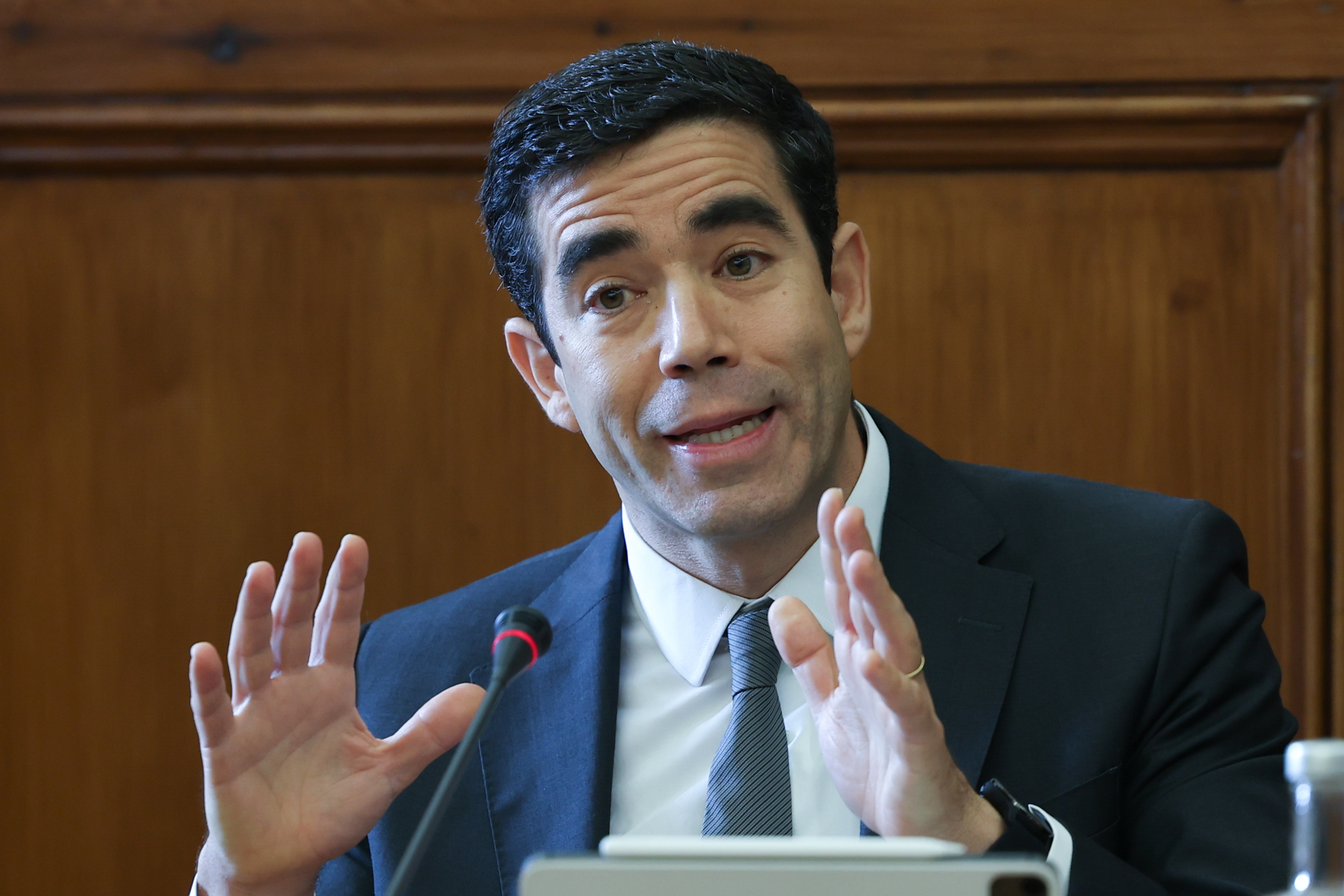Portugal's Housing Crisis: A Deep Dive into the Parliamentary Debate and Investor Implications
In a pivotal parliamentary debate that lays bare the ideological fault lines in Portugal's approach to its housing crisis, Minister of Infrastructure
Miguel Pinto Luz acknowledged that the government's current policies will not deliver short-term price relief. This admission, set against a backdrop of intense criticism from opposition parties, provides critical insight for foreign investors trying to navigate the complexities of the Lisbon real estate market and beyond.Key Takeaways
- ✓ No Short-Term Fix: Portugal's Infrastructure Minister confirms the government's strategy is focused on medium-to-long-term impact, ruling out immediate price reductions.
- ✓ Policy Under Fire: Opposition leaders, including Left Bloc's Mariana Mortágua, argue that tax incentives for landlords are exacerbating price inflation, not solving it.
- ✓ Supply-Side Focus: The government is banking on a supply-side solution, defending its strategy with a committed €800 million investment and a goal of 59,000 new affordable homes.
- ✓ Investor Uncertainty: The heated debate signals significant political risk and ongoing uncertainty regarding the future of rent controls and tax legislation in Portugal's property sector.
The debate unfolded during the review of the national budget, a critical time for assessing the government's priorities. Minister Pinto Luz’s candid statement—"I will not deceive the Portuguese"—was a clear message to the market: the administration is holding its course on a strategy centered on boosting housing supply, rather than implementing the demand-side restrictions, such as hard rent caps, favored by the opposition. This strategic stance has profound implications for property investment models, particularly in high-demand areas like the Lisbon metropolitan area.
For international investors, this debate is more than just political theater; it is a direct look into the foundational arguments shaping Portugal's real estate landscape. The government's resistance to immediate market intervention, juxtaposed with the opposition's loud calls for it, creates a dynamic environment where staying informed is paramount. A deeper understanding of these trends is available through our detailed real estate market insights.
Market Implications for Investors
The core of the disagreement lies in fundamentally different economic philosophies. Left Bloc coordinator
Mariana Mortágua, an economist, delivered a sharp critique, stating, "Housing demand is inelastic... and there is foreign demand that inflates the market." She argued that the government's "moderate rent" program, which provides tax benefits to landlords who adhere to a rent ceiling of up to €2,300, effectively finances speculation by creating a high benchmark. This sentiment was echoed by the PCP deputy, who accused the government of "financing speculation" instead of combating it.This perspective is a significant risk factor for investors, particularly those in the buy-to-let segment. Should this view gain enough political traction, it could lead to the introduction of stricter rent controls, potentially impacting rental yields and the overall return on investment. The current administration's defense rests on classic supply-and-demand economics. "Do you want to convince the Portuguese that the law of supply and demand does not exist?" Minister Pinto Luz challenged, framing the issue as a simple lack of housing stock.
This ideological clash translates into tangible market uncertainty. While the government's commitment to injecting €800 million into housing and facilitating 59,000 new homes under the
Primeiro Direito program offers a degree of stability, the political pressure for more immediate, regulatory solutions is mounting. Investors must therefore weigh the government's stated long-term, pro-supply policy against the non-trivial risk of a future pivot towards regulation.The Government's Long-Term Bet
Minister Pinto Luz's defense of the government's strategy is a calculated bet on long-term market stabilization through increased supply. By focusing on construction and avoiding what he sees as market-distorting price caps, the administration aims to create a healthier, more balanced market over time. This approach is generally favored by developers and long-term institutional investors who believe that only a structural increase in housing stock can solve the affordability crisis sustainably.
This strategy, however, is being tested in real-time. The Livre deputy,
Isabel Mendes Lopes, confronted the minister with data suggesting that prices have continued to rise even in areas with significant new construction. This challenges the core assumption of the government's policy and gives ammunition to those calling for more direct intervention. For investors, this highlights the importance of micro-market analysis, as the impact of new supply can vary significantly by neighborhood and property type.Need Expert Guidance?
Get personalized insights from verified real estate professionals, lawyers, architects, and more.
Broader Market Context: Lisbon and Beyond
The parliamentary debate is a reflection of the intense pressures within the Portuguese property market, especially in Lisbon. The city has transformed into a global hub for tourism, technology, and expatriate living, creating immense demand that has far outstripped the available housing supply. This has created a dual market: one for locals facing an affordability crisis, and another for international investors and high-income earners able to meet the rising prices.
Several key factors define this complex environment:
- Persistent Foreign Demand: Portugal's appeal, driven by its quality of life, safety, and programs like the former Golden Visa and NHR scheme, continues to attract significant foreign capital, underpinning property values.
- Structural Supply Deficit: Years of low construction rates, coupled with a complex and slow licensing process, have created a structural housing deficit that will take years to resolve.
- Political and Regulatory Risk: The vocal opposition and public discontent create a persistent risk of sudden policy shifts, including changes to property taxes, rental laws, or foreign investment incentives. Understanding the regulatory and legal frameworks is therefore essential.
- Economic Resilience: Despite global headwinds, Portugal's economy has shown resilience, and its attractiveness to multinational companies and digital nomads continues to fuel demand for both residential and commercial property.
Investment Considerations
For a foreign investor, this political landscape demands a nuanced strategy. The minister's confirmation of a 'no short-term fix' policy implies that the underlying market dynamics of high demand and low supply will likely continue to drive the market in the immediate future. This could support further capital appreciation, but it also increases the political pressure for intervention.
A prudent investment strategy should therefore include a thorough assessment of political risk. This involves not only monitoring parliamentary debates but also understanding the specific legal implications of any proposed changes. For example, a shift in the "moderate rent" program could alter the financial viability of a rental property. Therefore, engaging with professionals, such as English-speaking real estate lawyers, is not just advisable but essential for due diligence.
Investors should also consider diversifying their strategy, perhaps by exploring emerging neighborhoods over prime, saturated areas, or by focusing on property types less likely to be affected by rental regulations. The government's focus on the 'Primeiro Direito' program also signals opportunities in the affordable housing sector for institutional investors.
Future Outlook
The path forward for Portugal's housing market is intrinsically linked to the outcome of this political and ideological battle. If the government's supply-side initiatives begin to show tangible results in stabilizing prices, political pressure may ease. However, if prices continue their steep ascent and public discontent grows, a shift towards more stringent regulation becomes increasingly probable.
The current environment is one of cautious optimism for investors who are well-informed and strategically positioned. The fundamental drivers of the market remain strong, but the political crosswinds cannot be ignored. Navigating this requires diligence, expert advice, and a clear understanding of both the economic and political forces at play. For expert guidance on developing a resilient investment strategy in the Lisbon real estate market, contact realestate-lisbon.com.






